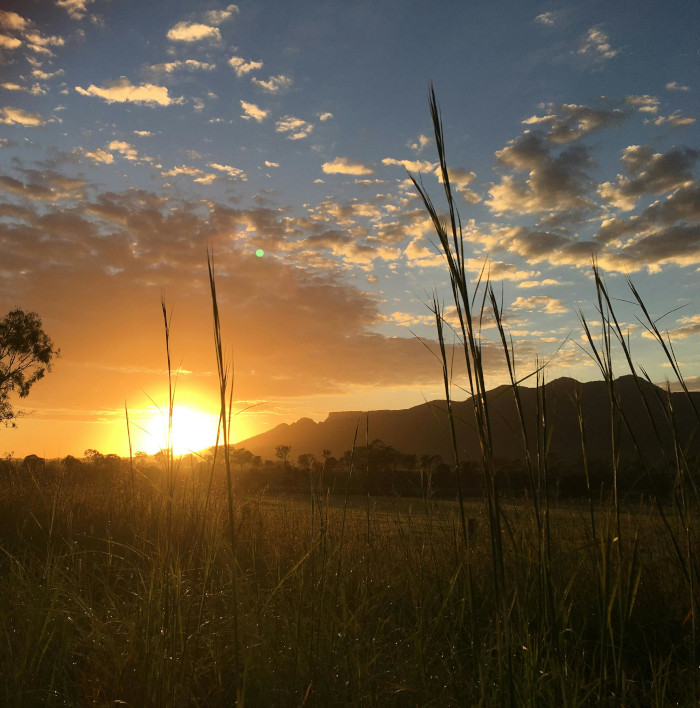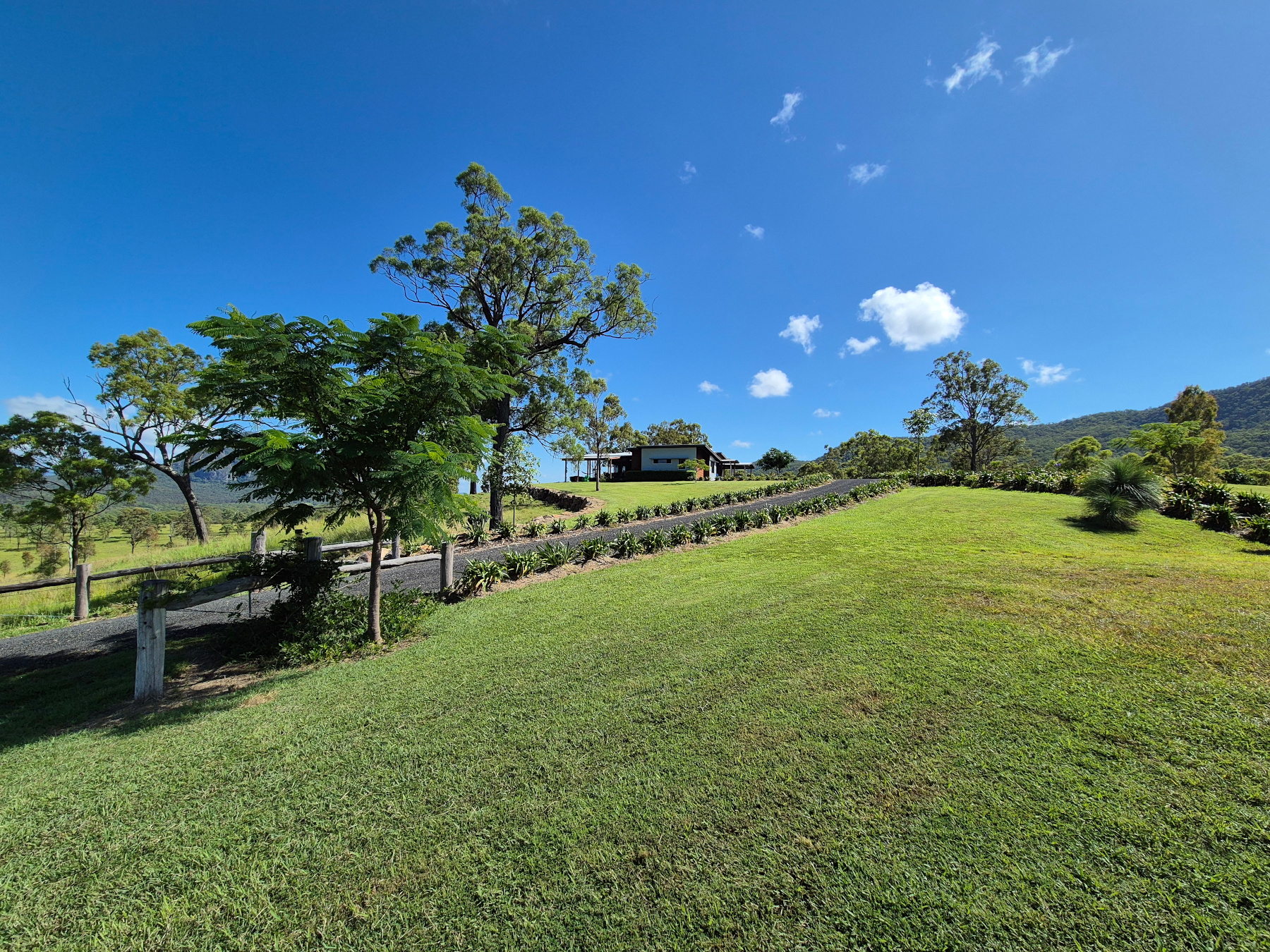Buying Rural Property
Buying rural property in Queensland can be exciting, but it takes more than simply choosing a block of land. Queensland’s natural beauty and relaxed lifestyle make it appealing, yet there are important details to understand before making a decision. If you’re exploring properties for sale in NSW rural or QLD rural areas, knowing these differences is essential.
Rural properties often come with unique considerations such as water rights, livestock agreements, tax implications, and existing third-party arrangements. These factors can influence both the purchase process and how the land can be used in the future.
In this article, we’ll provide practical buying guides to help you understand the key points when purchasing rural property in Queensland, and explain why engaging experienced buyers agents is important for navigating rural property with confidence.
Opportunities In Rural real estate
Property outside major cities is generally more affordable, allowing your money to go further. While lower prices are a key attraction, the appeal also lies in the relaxed lifestyle and the potential for strong rental returns. With the right buying resources, a rural buyer can better understand these opportunities and make informed decisions.
Rural living is typically grouped into four categories: inner regional, outer regional, remote, and very remote. But what are the main advantages of choosing this lifestyle?
Affordability
Comparing property prices between the city and the country can be quite revealing. In many regional areas, it is possible to purchase a single-level home on a large block of land for significantly less than the cost of an apartment in the city. For those who have dreamed of acreage living, it may be more attainable than the price of a standard suburban home.
While beachside or waterfront living in metropolitan areas is often out of reach, regional coastal towns provide more affordable opportunities to make this lifestyle possible.
Rental costs are also lower in rural areas, meaning you don’t necessarily need to buy a property to enjoy the benefits of country living.
Lifestyle Appeal
Fresh country air has long been associated with better health and wellbeing. Many people return from even a short stay outside the city feeling refreshed and renewed. With fewer cars, factories, and industrial activity, rural areas generally have lower levels of pollution compared to urban centres.
Australian country towns are often characterised by wide streets and larger block sizes, providing a sense of space that is especially appealing to families.
Rural living also offers the opportunity to enjoy stunning natural landscapes, with easier access to beaches, bushland, and outdoor recreation.
Life in the country tends to move at a gentler pace and is enriched by a strong sense of community. Local sporting clubs often provide a way for residents to connect, while the close-knit nature of rural towns fosters a feeling of belonging.

You No Longer Have To Change Jobs In Rural real estate
The growth of remote work has allowed many city-based employees to relocate to the country while continuing with their existing employers. Even those in hybrid roles, who may need to attend the office once or twice a week, can still consider living in a regional region with the right planning.
Towns on the outskirts of metropolitan areas with direct train access to the CBD are often ideal choices, making the commute manageable. For many, the lifestyle benefits of rural living outweigh the inconvenience of a longer journey on certain days, and relocation guides can help highlight the best options.
From an investment perspective, purchasing a regional property with a dedicated study or home office can be an attractive feature for tenants.
Government Incentives
For those seeking to increase their income, relocating to a regional or rural area may present worthwhile opportunities. Many of these locations offer financial incentives designed to attract and retain skilled workers, resulting in higher take-home pay.
Additional benefits may include extra paid leave, assistance with schooling, or rental subsidies. Professionals in the health and education sectors, in particular, may find these incentives especially advantageous.
Get A Step On The Property Ladder
There are also a range of incentives encouraging first-home buyers to consider regional areas. With property being more affordable, buyers are often more likely to qualify for first-home buyer grants or, in some cases, receive a full exemption from transfer duty.
Each State and Territory provides its own programs, so it is important to review what is currently available in your location. Most schemes require purchasers to occupy the property for at least six months within the first year of purchase or construction.
Positive Cash Flow
Lower property prices generally mean more affordable mortgage repayments. While capital growth in rural areas may take longer to achieve compared to metropolitan markets, the potential to pay down a mortgage sooner can provide greater financial flexibility for other goals such as travel or renovations.
For investors, regional areas with shopping centres, medical facilities, schools, and low crime rates are often attractive to families and tenants. It is also important to consider the stability of local employment. Mining regions, for example, can deliver strong returns, but fluctuations in supply and demand can make these markets more volatile.
Expand Your Interests
Property investment is a proven way to build long-term wealth, offering both improved cash flow and potential tax advantages. Adding a rural property can provide valuable diversity to an investment portfolio.
Well-maintained properties that are appealing to tenants are more likely to appreciate in value over time. Depending on the size and use of the land, there may also be opportunities to generate additional income through leasing arrangements or agricultural production.

Other Ways Of Investing
It is not necessary to purchase an entire farm to participate in rural property investment. An alternative approach is fractional investing, where individuals purchase a share of a property and, in turn, receive a proportion of the rental income or capital growth.
This model operates in a similar way to crowdfunding and can play a role in supporting rural communities. By dividing the property into shares and selling them, farmers are able to raise capital to improve productivity while still retaining the majority of their landholding.
Other Considerations When Buying Rural
Rural properties can involve unique challenges that buyers should carefully consider. Taking the time to assess these factors before purchasing will provide a clearer understanding of any potential limitations or obligations that could affect future plans for the property.
Some of the more common pitfalls include:
Remoteness
Relocating from the city can be an exciting change, but it may also present challenges when adjusting to new surroundings and a different pace of life. Establishing a routine and engaging in community activities can be valuable ways to connect with local residents.
For those uncertain about making such a commitment, renting initially may provide a practical opportunity to experience the lifestyle before purchasing a home.
From an investment perspective, managing a rural property can be difficult when distance is a factor. Engaging a reliable buyer’s agent with strong communication skills can help ensure that any issues are addressed promptly and that you remain well informed.
Farms As Neighbours
Country living can be highly rewarding, but it also comes with practical realities. Properties bordering farms may experience issues such as odours, fertiliser drift, or early morning noise from regular farming activities.
Before purchasing a rural property, it is important to understand who your neighbours are and the nature of activities occurring around the boundaries of the land. Consider how these factors may impact your enjoyment of the property, and review local council zoning regulations to determine what types of operations may be permitted nearby.

Environmental Factors
It is important to assess a rural property for potential environmental risks such as flood-prone areas, bushfire zones, or protected wildlife habitats. These considerations may influence development opportunities and could also affect insurance requirements.
Risks Of Buying Unregistered Land
Purchasing unregistered land carries significant risks. Without a clear legal title and defined boundaries, buyers may be exposed to disputes and potential legal complications. It is essential to ensure that a registered title is obtained and to engage a buyers agent to conduct thorough title searches, confirming clear and transferable ownership.
The Area’s Economy
It is generally advisable to purchase property in areas with a strong and diverse economy, as this helps to protect long-term value. Caution should be exercised in regions reliant on a single industry, such as mining or agriculture, as a downturn in activity or a natural disaster could significantly impact the local economy and, in turn, property values.
Rural areas surrounding smaller cities like Toowoomba in Queensland can present attractive opportunities. The local economy is underpinned by agriculture, education through its university, and an emerging financial services sector. While still relatively regional, this economic diversity provides stability and strong potential for future growth.
Cost Of Living
Although housing is generally more affordable in regional areas, the cost of living may be higher depending on location. Expenses such as petrol, groceries, and electricity can increase due to transport costs, freight charges, and limited retail competition.
Some of these costs, however, may be offset by purchasing fresh produce directly from local farmers, which can also provide access to higher-quality seasonal goods.
Inclusion Of Livestock And PIC
When purchasing a rural, acreage, or lifestyle property where livestock are, or could be, kept, the Property Identification Code (PIC) becomes important.
Understand that PICs are also used for livestock movement records (NLIS tags, waybills, etc.), so maintaining an active and accurate PIC is essential for compliance
What a PIC is:
A PIC is a unique code issued by Biosecurity Queensland (or the relevant state authority) that identifies a parcel of land where livestock are kept. It is a legal requirement for anyone who owns livestock such as cattle, sheep, goats, pigs, and in some cases horses or alpacas.
Tied to the land, not the person:
The PIC is attached to the property, not the individual owner. When the property is sold, the PIC number remains with the land. However, the new buyer must update the registration details so the PIC reflects their ownership or management.
What buyers need to do:
As a new landowner, you must:
Contact Biosecurity Queensland to update the PIC details into your name.
Ensure the PIC remains current if you intend to keep livestock.
Meeting Your Future Needs
When relocating to a rural area, it is important to consider long-term needs as well as immediate lifestyle benefits. While a local primary school may be convenient for young children, access to high schools or universities may present greater challenges as they grow older.
Limited medical services, geographic isolation, and less developed infrastructure are also factors that should be carefully evaluated when planning for the future.

Land Covenants
Rural land that has been subdivided and developed is often subject to covenants, which set rules regarding how the property can be used. These covenants are usually imposed by the developer or local council to minimise impacts on neighbouring properties and to maintain the overall standard of the area.
It is essential to confirm any covenants with the vendor and carefully review the fine print, as these restrictions may limit certain farming activities or require the land to be maintained or developed in specific ways.
Sewerage And Water Supply
Not all rural properties are connected to a central sewerage system or town water supply, with many instead relying on septic tanks or alternative systems. If the property includes a dwelling, it is important to establish what sewage system is in place or whether one has been installed at all.
Buyers should confirm that appropriate council consents have been obtained, understand the ongoing maintenance requirements, and ensure that any resource consents are transferred at settlement. This is a critical step, as installing or rectifying a sewage system can be a costly undertaking after purchase.
Pests And Diseases
If you intend to grow crops or raise livestock, it is important to identify any pests or diseases that may be present on the property prior to purchase. Issues such as fruit fly infestations or diseased pasture can create significant challenges for farming activities.
Certain regions are designated as pest and disease management areas, so it is advisable to check with your conveyancer or local council to confirm whether the property falls within these zones. Prospective buyers should also be aware of common local pest concerns and carefully inspect vegetation on the land. Where uncertainty exists, soil testing and pest inspections should be undertaken, with results reviewed by a qualified agronomist to ensure a full understanding of potential risks.
Consider Community For properties for sale
Rural communities vary greatly, some offer active town centres, community hubs, and vibrant social settings, while others are quiet, secluded, and more isolated. It is important to reflect on the type of lifestyle you are seeking and spend time in the area prior to purchasing to ensure it aligns with your expectations.
Harsh Climate
Australia is no stranger to extreme weather events such as droughts, cyclones, bushfires, and flooding. These natural challenges can significantly impact agriculture and food production, which in turn affects the economic stability of rural communities.
Unpredictable weather increases the risk of crop damage and places pressure on those who depend on farming for their livelihoods. Collectively, these conditions can also influence the overall health and wellbeing of rural residents

Potential Constraints For rural land
Purchasing rural property involves risks that are not typically encountered with suburban or inner-city real estate. When buying farmland, it is important to confirm the property’s approved use and zoning requirements.
Water resources in rivers and lakes are regulated by local and state governments, meaning a water licence may be required. For those intending to grow crops, a horticultural assessment may also be necessary to confirm that the soil is free from chemical residue.
A search should additionally be conducted to determine whether there are any native claims over the land. As with all property purchases, obtaining a building and pest inspection is an essential step before proceeding.
Due Diligence
As Queensland operates under a ‘buyer beware’ principle, it is essential that purchasers undertake thorough due diligence by conducting all necessary searches prior to settlement. Buyers should be aware of the types of searches available, the implications of their results, and the risks involved in proceeding without adequate investigation. Careful attention must be given to this process, as seller warranties may prove insufficient or unenforceable if the seller lacks the assets to satisfy a claim.
When undertaking searches as part of due diligence, consideration should also be given to timing. Turnaround periods can vary significantly, from a matter of minutes to several weeks, depending on the search. If the contract provides a specific due diligence period, all searches must be ordered and returned within that timeframe to allow the purchaser adequate opportunity to review the results and determine whether further investigations are required.
Another consideration is the accuracy and reliability of search results. For example, a contaminated land register will only disclose an issue if it has been formally notified to the Department. There is also potential for human error, such as typographical mistakes when processing a search request. For this reason, it is often advisable for purchasers to arrange on-site inspections or independent assessments to verify information, rather than relying solely on computer-generated results.
It is also important to note that undertaking searches does not automatically provide a right to terminate a contract. Termination is generally only available if the purchaser can demonstrate material prejudice based on the results, or where the contract includes the benefit of a due diligence condition. Accordingly, buyers should ensure that a due diligence clause is included before signing and should always seek legal advice in advance.
Risks Of No Due Diligence
Proceeding with the purchase of a rural property without undertaking searches or full due diligence may result in the buyer not receiving the full benefit of the property or certain aspects of it. Relying solely on the seller’s disclosure can be risky, particularly where the seller may be uninformed or where the intended uses of the property differ (for example, cattle versus cropping). A lack of investigation will not protect a buyer if issues arise after settlement.
Careful attention to these matters is essential to achieving a successful outcome. Each rural transaction is unique, with a wide range of potential variables. While there are common elements, it is strongly recommended that buyers obtain professional advice from a buyers agent at an early stage, ideally prior to entering into a contract.
Seek Personalised Support When Buying
Purchasing rural land in Queensland requires careful consideration of many factors that extend well beyond the land itself. To navigate these complexities effectively, it is highly beneficial to engage experienced buyer’s advisers who specialise in rural property transactions.
At Precision Property Buyers Agency, we provide tailored expertise and a comprehensive range of services designed to meet your individual needs. By working with our team, you can be assured of professional guidance throughout the entire process, ensuring compliance with all requirements while minimising potential risks. We invite you to contact our team to discuss how we can support your rural property purchase with confidence.








